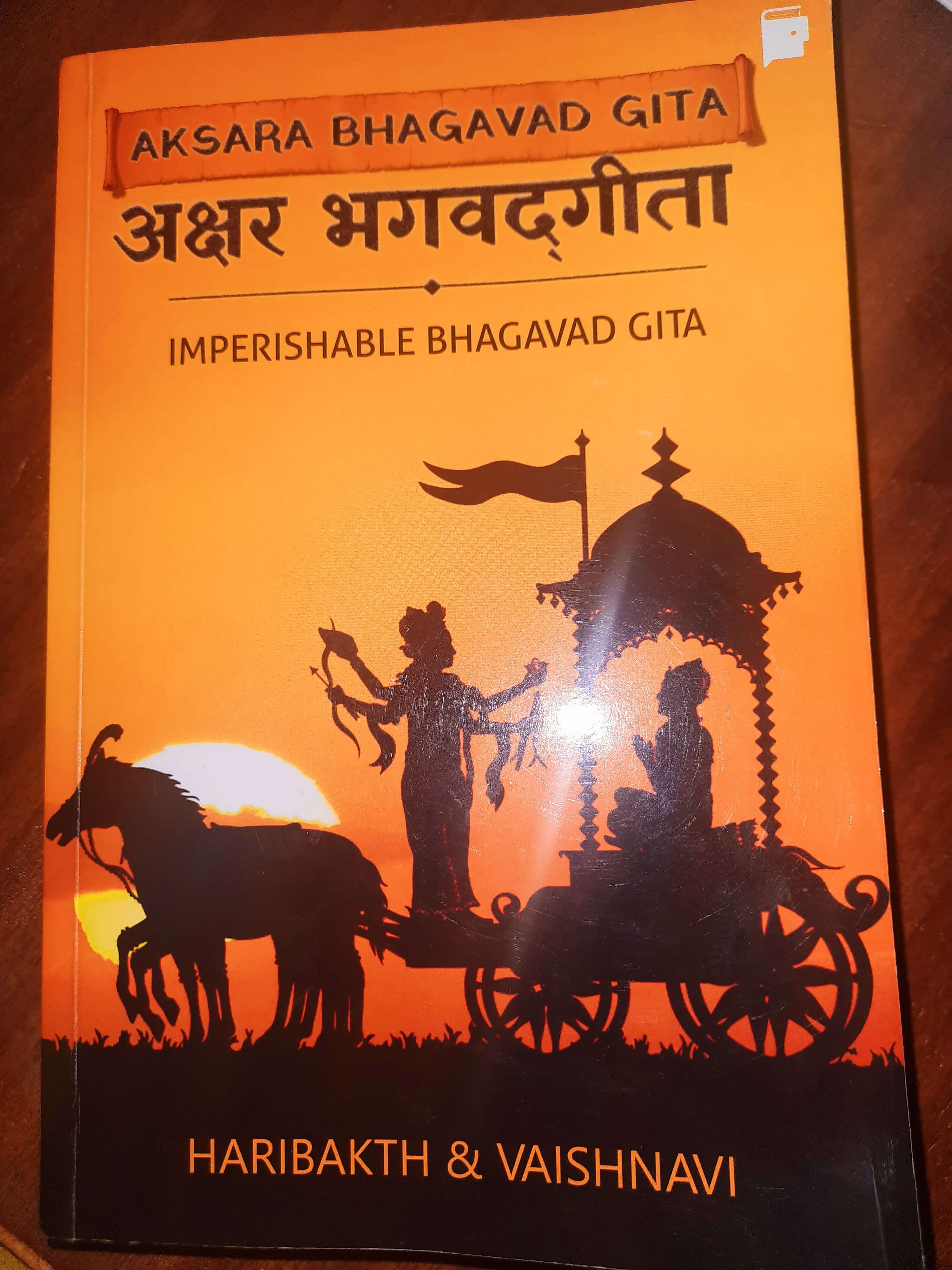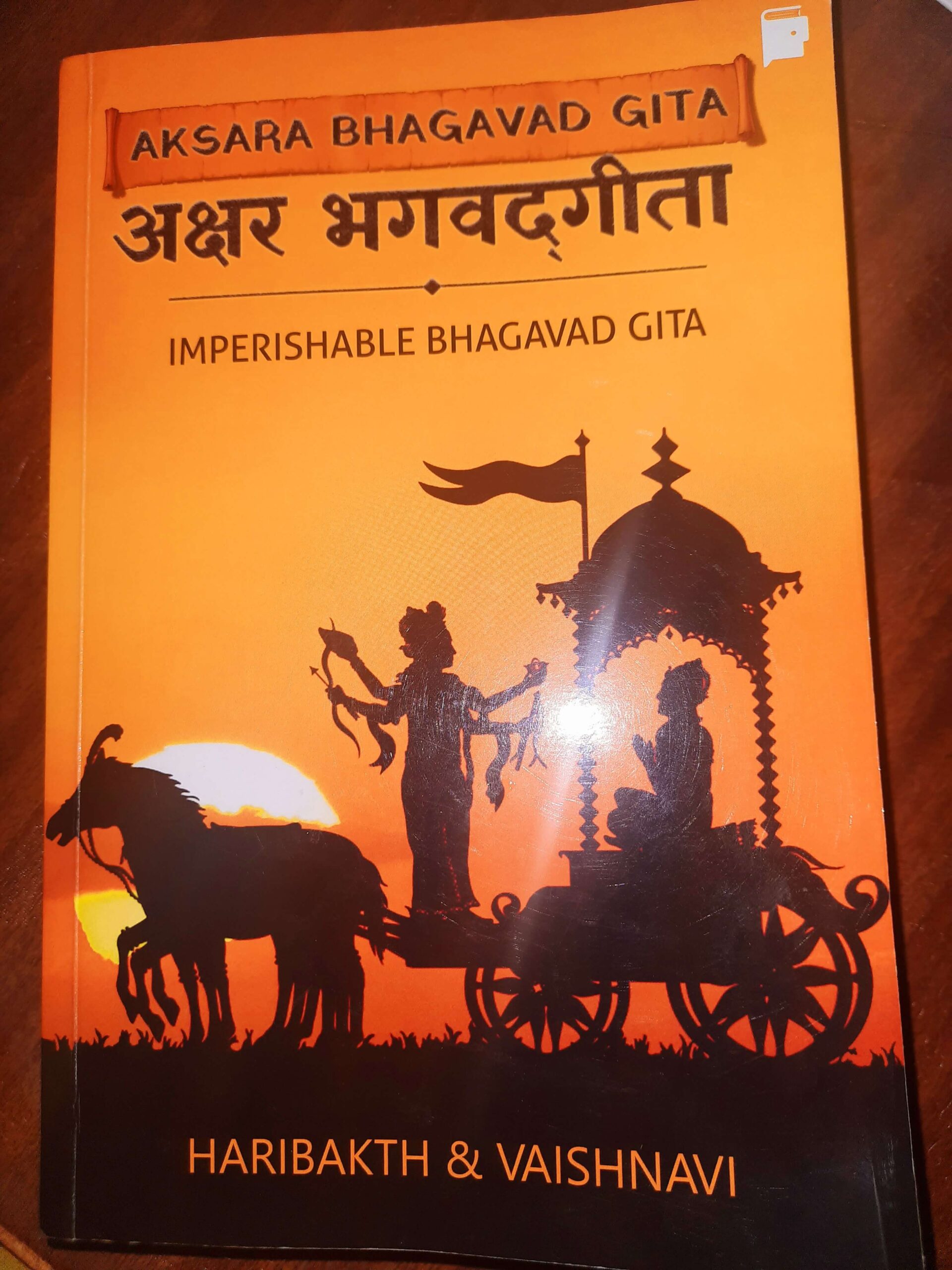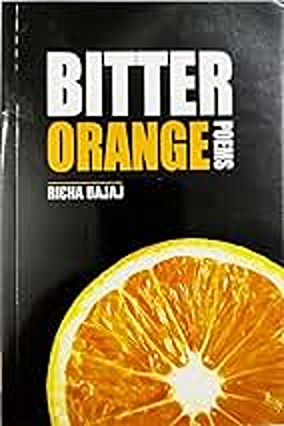Sneha reviews Aksara Bhagavad Gita: Imperishable Bhagavad Gita by Haribakth and Vaishnavi, exclusively for Different Truths.

Gita is obviously one of the most read and discussed books, not only in India but also across the globe. People read and interpret it according to their own perception and try to follow it. And if I can take the liberty of saying that people use its shlokas to sometimes show off their intelligence.
I have read many versions of Gita, from the Sanskrit version of Gita from Gita press to the English version by Devdutt Pattanaik.
But somehow, I always used to wonder what if I am reading or interpreting it wrong all along.
… this book not only changed my whole perspective of Gita but gave a better insight into this wonderful book.
Then I came across this book, Aksara Bhagavad Gita: Imperishable Bhagavad Gita by Haribakth and Vaishnavi, and this book not only changed my whole perspective of Gita but gave a better insight into this wonderful book.
The book launch began with an interesting press conference by authors, wherein they answered the queries of journalists and gave the readers a heads on about the book and its content.
In the press conference, there was a wonderful statement wherein Christina mentioned Gita as a proper noun and her own published book, a mere adjective for Gita.
This book not only gives theories but also explains them in detail, in a practical way.

This book not only gives theories but also explains them in detail, in a practical way. It narrates the different perspectives of This Holy Scripture, different ideologies and ideas presented in the book, and how it can be interpreted and can be used in our day-to-day life for our life’s betterment. There isn’t anything more scientific than the Gita.
The formation of Gita society and the opposition Haripriya and Christina faced despite being technically correct, shows that how rigid we are in our mindset and beliefs and how difficult it is to think out of the box or from others’ perspectives, howsoever right it is.
As we perceive Gita as the word of God, we often take it as a non-negotiable and uncompromising element that our Almighty is communicating. However, there prevails a non-word component of communication by God, which unfortunately remained untouched or unveiled from humanity.
This book is going to be an effort to bring harmony and peace amongst the otherwise lost religious bigots through unleashing the non-word component of the Gita.
… we completely understand and can accept the voice of reason from Haribhakt, Haripriya, and Christina.
But by the end of the book, we completely understand and can accept the voice of reason from Haribhakt, Haripriya, and Christina.
The book is written in a conversational style and discusses all the points in detail and gives a clear understanding of the text. The language used is easy to read and understand.
An eye-opening account of the Gita.
Cover photo by the reviewer and visual by Different Truths.





 By
By
 By
By
 By
By
 By
By